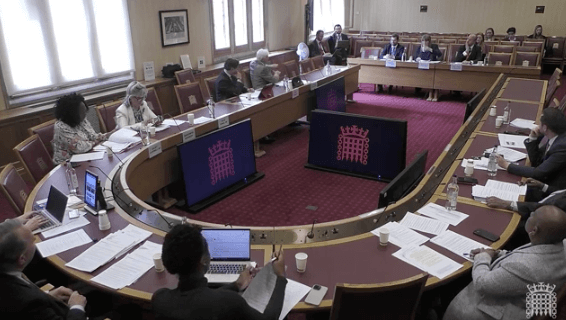My analysis today for @GIS_Reports of the geopolitical role of the papacy-why Pope Leo needs to reassess the Vatican’s embrace of the CCP-which commits genocide, persecutes religion, imprisons political dissenters, uses slave labour, tramples on human rights – and why Hong Kong’s Venerable Cardinal, Joseph Zen, warned the Conclave’s voting Cardinals to avoid the whiff of red smoke.
https://www.gisreportsonline.com/r/pope-geopolitics
The election of Pope Leo XIV: Geopolitics of the papacy
by David Alton
Reading time: 19 min
In a world teetering between authoritarianism and apathy, the new pope has a choice – challenge injustice or repeat the mistakes of silence and compromise.
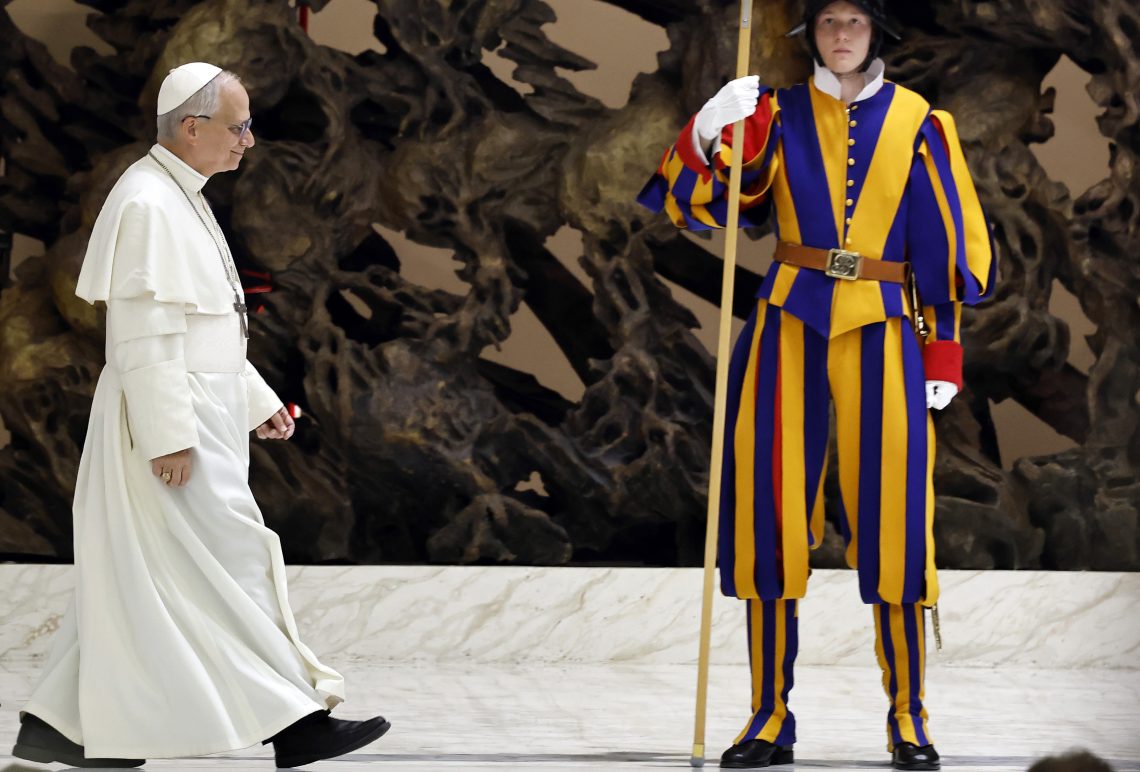
In a nutshell
- Recent popes have shaped geopolitics through their worldview
- Pope Leo XIV inherits a Church with global reach
- His legacy will hinge on which issues he decides to confront
- For comprehensive insights, tune into our AI-powered podcast here
On May 8, on the fourth round of ballots, the voting members of the College of Cardinals elected Robert Prevost as the 267th pope, to lead the world’s 1.4 billion Catholics. Many of the faithful who patiently waited in St. Peter’s Square would have been praying for a holy man to renew and deepen the Church’s principal religious mission of evangelization.
But beyond that role is a societal and political question: How can a pope use his moral authority and office to make a difference in the world? What does Pope Leo XIV’s background and experience suggest about how he will use the papal office to shape his global priorities and engage in geopolitics? What difference does it make that he is the second consecutive pope from the Americas and the first to have been born in the United States?
The geopolitical influence of a pope
It is said that Joseph Stalin sneeringly interrupted a speech by Winston Churchill to ask, “How many divisions has the pope?” The ruthless Soviet leader, of course, dismissed the idea of moral strength when measured against tanks, divisions and armies.
What Stalin failed to see is that the pope’s divisions are not dependent on physical might but march to a different drumbeat. Pope Pius XII quipped that, “You can tell my son Joseph that he will meet my divisions in heaven.” But popes have less ethereal resources too.
Principal among those at the pope’s disposal is the Holy See, headquartered in the Vatican. It provides him with diplomats and envoys whom he can deploy worldwide.
Popes were historically described as “prisoners of the Vatican” but, in reality, the tiny territory provides the papacy with an independence, freedom and universality which would rapidly diminish if it were beholden to a host nation.
Since John Paul II’s election in 1978, the notion that the pope would always be an Italian or unable to travel the world has truly been consigned to yesteryear. During his 26-year pontificate, the Polish pontiff reshaped the world’s perception of the papacy, setting a very high bar as pilgrim, evangelist, prophet and preeminent defender of religious freedom.
The dangers and consequences of identifying as a national church are graphically illustrated by the Kremlin’s ownership of the Russian Orthodox Church, which is crudely deployed by Russian President Vladimir Putin to legitimize the illegal and the profane.
In contrast, although he is a diocesan bishop (he is now the Bishop of Rome), a pope’s authority and influence can spread far beyond the River Tiber – and even beyond the titular description of Patriarch of the West. It is now surely only a matter of time before we see a pope from Asia or Africa, where Christianity has been growing exponentially.
How might Pope Leo XIV use his global reach?
In his first address from the balcony of St. Peter’s Square, Pope Leo XIV presented himself as a bridge builder and a peacemaker. On the day of his election, President Putin’s war continued to rage in Ukraine, carnage claimed more lives in Sudan, deaths were reported in Gaza, India and Pakistan were attacking one another, and China was renewing its threats to ignite a global war by invading Taiwan. May 8 was also the 80th anniversary of the victory against Hitler’s Nazis. What would have happened to Europe if brave men and women had not taken up arms to defend their liberties? Peace cannot exist alongside rank injustice and cruelty.
The new pope has chosen a name that means lion in Latin. The choice will be associated with other popes who also took that name, principally the writer of the great encyclical, Rerum Novarum (“Of New Things”), published in 1891 by Pope Leo XIII.
Papal encyclicals are directed at the whole world, and Pope Leo XIV’s predecessors have used them to speak beyond the Catholic pews; to challenge our preoccupations and priorities and to provide a different vision instead.
Pope Leo XIII’s Rerum Novarum is rightly cited as a foundational Catholic teaching. It is subtitled “On the Condition of Labor” and is sometimes known as “The Rights and Duties of Capital and Labor.” It confronts the often subhuman conditions in which too many working people are condemned. It examines the relationship between labor and capital from a non-Marxist perspective.
It champions the dignity of labor and calls for governments to protect the rights of workers. While recognizing the need for social reform, it critiques the dangers inherent in communism and state-imposed socialism, and insists on the right to private ownership.
In choosing his name, the new pope may have also been looking back to the first Pope Leo. In 452 AD, Pope Leo the Great persuaded the nomadic Huns not to attack Rome and three years later, persuaded the Vandals not to destroy the city – averting both total disaster while enhancing the prestige and role of the papacy.
As Pope Leo XIV considers his own direction and how best to use his authority and to deploy his divisions, it is worth recalling some of his postwar predecessors and what might be his priorities and those of his unobservable divisions in global engagement.
Pope Pius XII and the rise of fascism

I was born during the pontificate of Pius XII. In 1937, his predecessor, Pope Pius XI condemned events in Germany stating: “Seldom has there been a persecution so heavy, so terrifying, so grievous and lamentable in its far-reaching effects. It is a persecution that spares neither force, nor oppression, nor threats, nor even subterfuge of intrigue and the fabrication of false facts.” In 1938, he said that no Christian could be antisemitic because “spiritually, we are all Semites.”
By 1931, there were around 21,000 Catholic priests in Germany and over 8,000 of them, one-third, clashed with the Reich – several hundred were later eliminated. The Dachau concentration camp was known as “the priest’s camp” because 2,670 priests from around 20 countries were held there. Catholic politicians were arrested, publications suppressed and property confiscated.
Others collaborated and some were silent. The attempts of the papal envoy, Cardinal Pacelli (later Pius XII), to act as a peacemaker with the Reich have left a stain. His Reichskonkordat of 1933 was an agreement between the Holy See and the German Reich, wherein the Nazis promised to preserve religious freedom and the rights of the Church as an institution in return for a commitment to withdraw Catholic representatives from politics.
It was used by Hitler as the Reich’s first international agreement to gain global respectability while simultaneously asserting control of the Catholic Church and other religious institutions. Although when he died, the Jewish Chronicle recalled that Pius XII had helped “many hundreds of fugitive Jews find sanctuary in the Vatican,” there is no doubt that the Reichskonkordat was a mistake of epic proportions and has contributed to a wrong but widely held view of the Church’s indifference to the Holocaust.
Pope John XXIII and the spiritual renewal of the Church

In 1958, Pius was succeeded by Pope John XXIII. A few months before his death in June 1963, I was in Rome as a schoolboy and we raised our voices in St. Peter’s where we sang out the hymns Faith of Our Fathers and God Bless Our Pope.
A year earlier, he had convened and officially opened the Second Vatican Council, which was called to address the Church’s relationship with the modern world and to foster spiritual renewal. The Council fathers were invited to read the signs of the times and to respond accordingly. Commentators called it a time of metanoia – meaning a transformative change of heart; a time for spiritual conversion; a time when the windows of the Vatican would be thrown open and the Holy Spirit invited in. Above all, it was to be a time for renewal: “a new Pentecost.”
Although Pope John XXIII was a diocesan bishop – he was the Patriarch of Venice – he had also been a high-ranking curial diplomat. His experiences as an envoy in Bulgaria and Turkey included helping many Jews escape, encountering Armenians who had experienced genocide and engaging with the ancient churches of the East.
He had a mischievous sense of humor about the effectiveness of the Curia. He was once asked, “Is it true the Vatican is closed in the afternoons and people don’t work then?” “No,” he replied, “the offices are closed in the afternoons. People don’t work in the mornings.” But he also knew how to leverage the Church’s influence.
He knew that diplomats take their cue from those on whose behalf they act. In the right hands, hardheaded diplomacy can be a crucial element in championing priorities such as religious liberty. But, in the wrong hands, diplomacy can too often become a pretext for doing nothing or for appeasement.
In 1962, in opening the Great Council he was trying to usher in a new chapter. He called the Council “to diffuse the light of truth; to give right guidance to men both as individuals and as members of a family and a society; to evoke and strengthen their spiritual resources; and to set their minds continually on those higher values which are genuine and unfailing.”
Underlining his passion for religious freedom and the plight of the persecuted, Pope John singled out those bishops who could not attend the Council because “they suffer imprisonment and every kind of disability because of their faith in Christ.”
Pope Paul VI’s fight for religious freedom
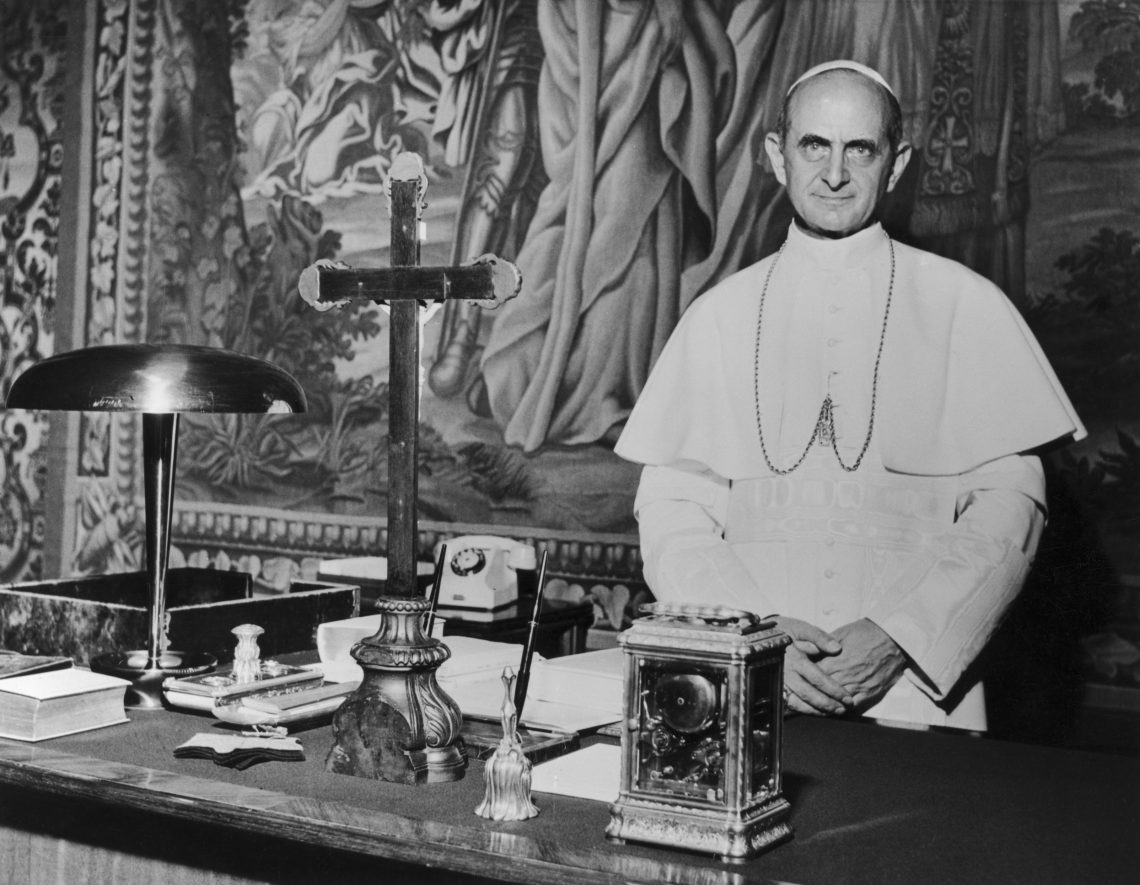
After John XXIII’s death in 1963, it was left to Pope Paul VI to continue the work of the Council – and to produce Gaudium et Spes (“Joy and Hope: The Pastoral Constitution on The Church in The Modern World”) and Dignitatis Humanae – which boldly (and controversially at the time) proclaimed the right to religious freedom.
Dignitatis Humanae insisted that the dignity of the human person should always be the primary consideration and the starting point for understanding religious freedom.
After three public debates, 126 speeches and some 600 written interventions, Article 2 of the Council’s final text asserted that everyone “has a right to religious freedom. This freedom means that all men are to be immune from coercion on the part of the individuals or of social groups and of any human power, in such wise that in matters religious no one is to be forced to act in a manner contrary to his own beliefs.”
In a world where 80 percent of people have a religious faith, but where 250 million Christians face what a former British foreign secretary described as the “most shocking abuses of human rights in the modern era,” the new Pope Leo XIV might wish to apply the Dignitatis Humanae test in many jurisdictions from China to Saudi Arabia, from North Korea to Nicaragua, from Pakistan to Nigeria.
Dictators and despots too often believe they can escape accountability for persecution, atrocities and even genocide because the democratic world thinks no one really cares. Hitler took the world’s indifference as a signal that he could get away with mass murder, famously saying, “Who now remembers the Armenians?”
Pope John Paul II against totalitarianism
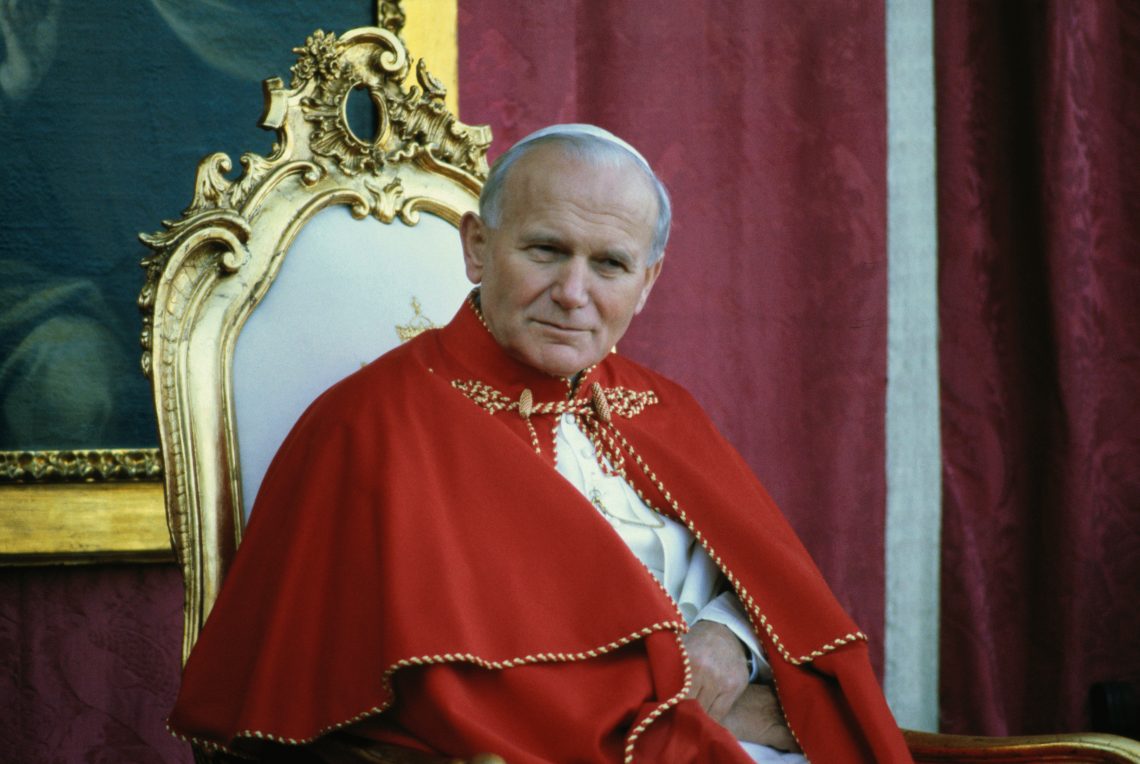
One of the young bishops who participated in the Vatican Council – and who had no intention of either forgetting what had gone before or remaining silent – was Karol Wojtyla, a Polish bishop who had experienced firsthand both the persecution of the Nazis and the communists.
He was elected in the autumn of 1978, after the 33-day papacy of the first John Paul (whose name he took). The Catholic world, along with many beyond it, wondered aloud about the kind of man who had been chosen to lead them. This was, after all, the first non-Italian pope since 1523. As Archbishop of Krakow, Karol Wojtyla came from a country occupied by Soviet troops and governed by hardline communist leaders. He was elected as Cold War tensions were reaching new heights, as the nuclear arms race was escalating, and as the world entered uncharted and dangerous waters.
From his first utterance from the balcony at St. Peter’s, where he famously encouraged Christians not to be afraid, it became clear that there was an interplay between Pope John Paul’s religious beliefs and the unfolding political situation.
Pope John Paul II made people feel uncomfortable, and also had the ability to touch millions in a profoundly personal way – both marks of a man who did not compromise his beliefs. He did not make concordats with dictators or opt to live as a neutral in a sort of spiritual Switzerland.
Pope John Paul II’s view of politics – whether shaped by the communist tyranny of his native Poland, the rampant materialism of the West or the poverty and lack of human dignity of the favelas and shanty towns of the developing world – was based on universal transcendent principles that he believed could guide statecraft, diplomacy, politics and economics.
His belief in the value of the human person led him to take an uncompromising stand against all that degrades the human being. This prophetic role is intrinsically different from “religious meddling” in the detail of the political process.
Pope John Paul II’s historic visit to Poland in 1979 inspired the dismantling of communist tyranny in the Soviet Union. In Poland, this was through the bravery of the Solidarity trade union and individuals like the young priest Jerzy Popieluszko, who was jailed and later kidnapped and murdered by the secret police in 1984.
Pope John Paul II had himself, in 1981, been the subject of an assassination attempt, shot by two bullets fired by Mehmet Ali Agca from within the crowd in St. Peter’s Square. But none of this deterred him from using his authority over and over again; in Ireland, for instance, “begging the men of violence” to end the killing and telling them that they had no right to imply any religious justification for their terror.
Benedict XVI’s repudiation of violence
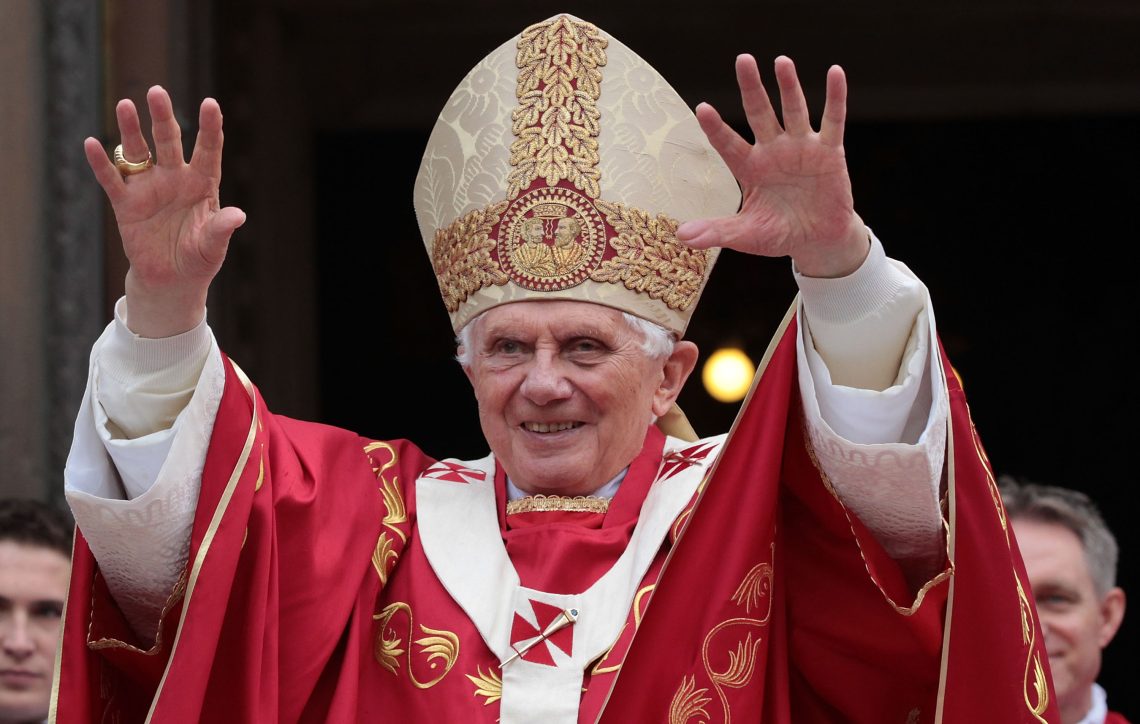
In 2006, Pope Benedict XVI gave his Regensburg Lecture to the faculty at the University of Regensburg in Germany, where he had once taught theology. It was entitled “Faith, Reason and the University – Memories and Reflections.” It led to protests and denunciations because he had dared to challenge the language of jihad and holy war.
Britain’s Independent newspaper carried a letter which appeared under the headline “The pope’s words reveal virus of bigotry and prejudice.” It was a gross and misleading caricature.
Unlike those who have called for jihad – “holy war” – and have resorted to the carnage of suicide bombs and the shedding of innocent blood, Pope Benedict XVI’s words were a repudiation of violence, condemning the use of violence by followers of all religions.
In the spirit of Dignitatis Humanae, he defended the right of people of all faiths to engage with the sacred in the face of the mockery and hostility of the secular world. It was an appeal for tolerance and Pope Benedict XVI made it clear that he held Muslims in “respect and esteem.” Where is the bigotry, prejudice and Islamophobia in that?
As he navigates through these same disputed waters, Pope Leo XIV must confront the same hard truths.
Lessons from the Francis papacy
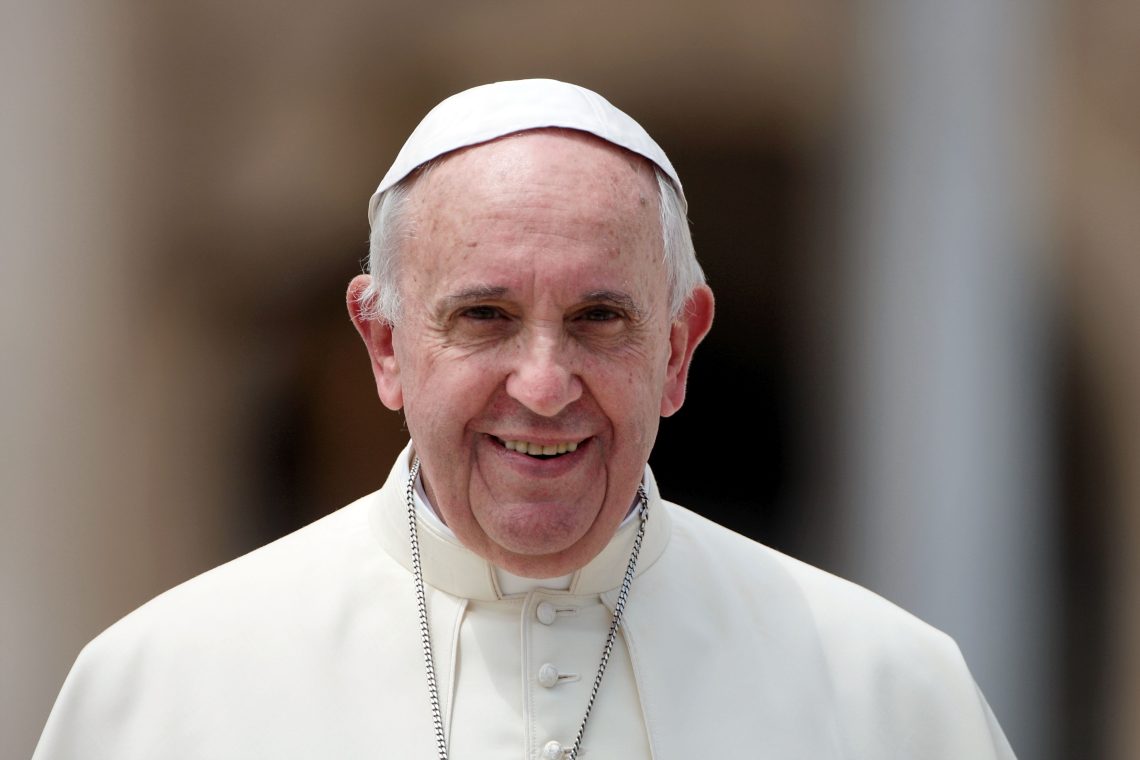
The British Parliament’s Joint Committee on Human Rights, which I chair, has just published a report examining the role of British jihadists who enlisted in the Islamic State (also known as ISIS) and committed genocide against religious minorities in Syria and Iraq, including Yazidis and Christians. ISIS “othered” minorities as “infidels.” As they murdered, abducted and enslaved women, few voices were raised. People were thrown from high buildings, beheaded, prisoners burned in metal cages, women raped and homes looted.
In North Korea, an edict from Kim Il-sung once declared that, “religious people should die to cure their habit.” And for 70 years that is exactly what has happened. In 2014, a United Nations Commission of Inquiry, concluded that North Korea is, “a State that does not have any parallel in the contemporary world; that Christians have been singled out for especially brutal treatment in “the horrors of camps that totalitarian States established during the twentieth century.”
During Hearings in the United Kingdom Parliament, we heard from two Christian women, escapees from those camps. Jeon Young-Ok said: “They tortured the Christians the most.” Hea Woo said: “The guards told us that we are not human beings … the dignity of human life counted for nothing.”
Meanwhile, the Chinese Communist Party (CCP), in blatant contravention of the 1951 Convention on Refugees, forcibly repatriates escapees from North Korea, including Christians, to a territory where they will be tortured, imprisoned and often executed.
Ignoring the crushing of religious freedom emboldens perpetrators who believe we are too weak or too disinterested to ever bring them to justice or to hold them to account. It is always the canary in the mine. We must not abandon the pursuit of truth to avoid polarization. We cannot be “nice” people and fail to speak out in the face of heinous crimes through fear of offending someone.
This brings me to the secret, never-published agreement – a concordat – made with the CCP in 2018 by Pope Francis, who succeeded Pope Benedict XVI in 2013.
Pope John Paul II had refused to collaborate with Soviet communism and he ended the Vatican’s discredited Ostpolitik approach to dictatorship. Ostpolitik, favored by Paul VI, was the policy of “engagement” and “dialogue” with the communist regimes of the Soviet Union. While always legitimate to seek lines of communication, this must not become an excuse for silence or worse.
Pope Francis made little secret of his own political inclinations and he hankered after the abandoned Ostpolitik of his youth. An imputed moral equivalence between President Putin’s Russia and Ukraine was a deeply disturbing aspect of this, but it also aligns with his stance on Chinese communism.
His silence about the CCP’s genocide of Uighur Muslims and Buddhist Tibetans (not least the treatment of the Dalai Lama) was shocking. But the shameful treatment of Hong Kong’s revered and venerable Cardinal Joseph Zen (who was refused admission to see the pope personally), his silence about the imprisoned Catholic publisher, Jimmy Lai, and the arrests and imprisonment of nearly 2,000 pro-democracy advocates in Hong Kong (including many Catholics like the lawyer Martin Lee) and the abandonment of China’s persecuted Christians, will not sit comfortably in any assessment of a papacy which appeared very selective in its approach to global injustices. Nor will silence about the 23 million beleaguered Taiwanese people whose religious and political freedoms are daily threatened by the CCP.
The path ahead for Pope Leo XIV
How quickly some forget the persecution of the underground Church in China. Show trials, executions and the torture of prisoners are among its hallmarks. Believers and their lawyers have disappeared. Churches and shrines have been destroyed. Last year, Bishop James Su Zhimin celebrated his 92nd birthday while under arrest, having spent half his life in prison or detention, experiencing torture. His crime? Refusing to renounce his Catholic faith and papal authority.
Now Shanghai has a bishop – Joseph Shen Bin – approved by Pope Francis, although he had no say in his selection. This CCP-approved “bishop” has openly called for a repudiation of papal authority, for a reinterpretation of the Bible, and for “Sinicization” of the Church based on “Xi Jinping’s thoughts on socialism with Chinese characteristics for a new era.” Code for more Christian persecution with well-documented Chinese communist characteristics.
More by Lord David Alton of Liverpool
- Does hope spring eternal?
- Global tensions: Parallels between the past and present
- Mental health crisis: Societal cohesion vs. economic progress
There was speculation that Cardinal Pietro Parolin, the architect of the 2018 deal with Xi Jinping’s regime, would become Pope Francis’s successor. It was clearly the wish of the CCP. At 93 years of age, Cardinal Zen travelled to Rome to prevent the whiff of red smoke at the Conclave. In 2020, he wrote that Pope Francis was manipulated and deceived about the secret concordat: “Parolin knows he is lying, he knows that I know he is a liar. He knows that I will tell everyone that he is a liar.”
From the legend of Faust, we learn what consequences flow from making a deal with demons.
Above all else, the Church is supposed to know about the consequences of selling one’s soul. Choosing to stand with those who suffer at the hands of the CCP, or with the perpetrators, will be a defining issue for Pope Leo XIV.
From the same balcony where Pope Leo XIV was introduced as the new pontiff on May 8, Pope John Paul II exhorted us to be “signs of contradiction,” to be “counter-cultural,” to “put out into the deep” and, above all, never to be afraid. These are words that still resonate in many ears. In his first homily, Pope Leo XIV echoed this spirit, declaring with conviction that “evil will not prevail.”
Pope John Paul II knew better than Comrade Stalin the value of the divisions at his disposal. I hope that Pope Leo XIV will, too.


